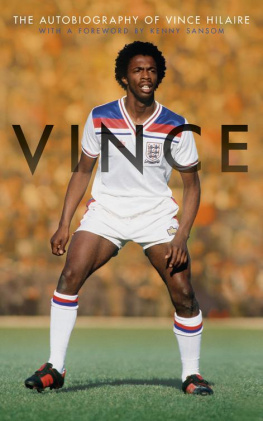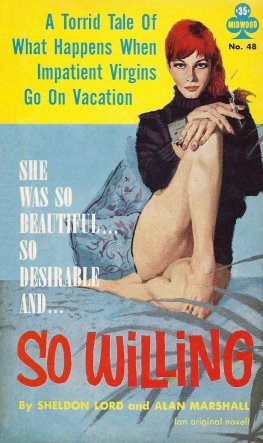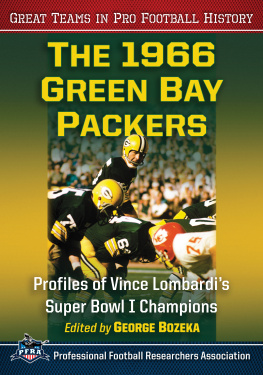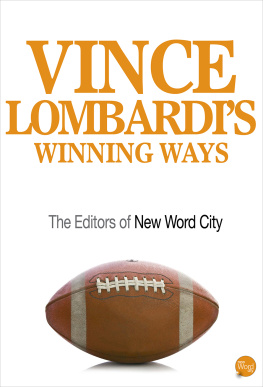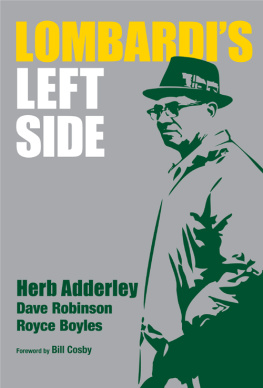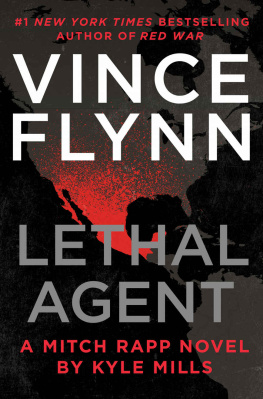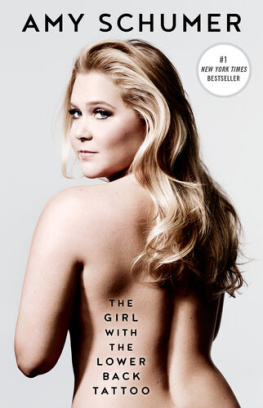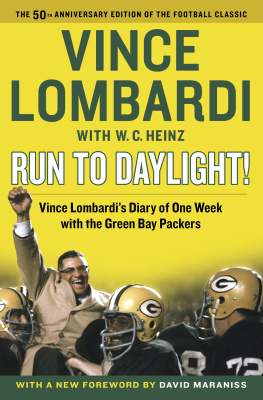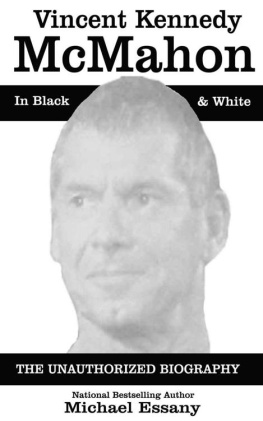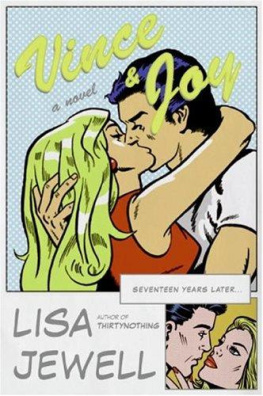BY K ENNY SANSOM
M y memories of Vince are all really good ones. He was a great lad, a great team player; he had great team spirit and was an all-round top man.
Vince is a couple of years younger than me and I can remember him joining Palace and being a lively young lad. He just loved being a footballer and being a part of the team. He was a little comedian and every day hed have a smile on his face. He had great character.
That character helped him because he used to get stick from fans of other clubs, but Im not sure he took that much notice. He almost had the attitude that they could do what they wanted. Vince was laid back and more concerned with his football than anything else, so he didnt allow himself to get put off by their abuse. We were playing sport at a high level and hed keep a smile on his face whatever was being said to him, and that says a lot about him.
To be honest, Vince got enough stick from his own players. Hed try and beat too many players at times hed tell you that. Hed beat three players and then cross it behind the goal and wed tear our hair out and tell him just to beat one and cross it into the box. He used to get a lot of mickey taken out of him for that. Ian Walsh and Dave Swindlehurst used to get the hump and have a go at him. But, to be fair to Vince, he did practise his crossing, and then hed go on a run and hit great crosses in.
I can only really speak about football, although I imagine that its the same for all sports, but people are always remembered for the bad things that they do. Its the same in life. People are quick to say, You did really well but Vince took the stick but he kept going and never stopped working. He was a tremendous team player; he really worked hard for the team.
I think its only now, looking back with hindsight, that we can appreciate how good that Palace side was. We had a team that was similar to the one Manchester United had under Ferguson with Giggs, the Neville brothers, Beckham, Scholes and Butt in it. They had six or seven boys that came through from the Youth team to the First team and we had exactly the same thing at Palace.
The team spirit we had at that time at Palace was as good as Ive ever known in football. When Leicester won the Premier League, they reminded me of our side because we had a similar camaraderie about us. Its such a shame that Palace side didnt stay together because well never know how good we could have been, but I feel sure that we could have got into Europe at least.
People say that when I left it all fell apart but, the truth is, I didnt want to go. I spoke to Terry Venables on the Monday at the training ground and agreed a new contract. I then came in on the Tuesday and, as I walked past his office, he called out: Ken, dont get changed. Drive over to Arsenal as they want to sign you. I didnt have a dad; Venners was my boss and mentor, so I did what he said. I got in my car and drove over there and signed for Arsenal. Venners always says that I wanted to leave but hes a fibber. Hes a crafty Cockney and hes kept that story going.
Going to Arsenal was great, dont get me wrong, but I didnt want to go. Palace was where I started and Id had a fantastic few years there with friends and some great teammates. Palace, at that time, was the kind of place where anyone who signed settled in within five minutes. The team spirit was that good and Vince was a key part of that, with his brilliant sense of humour.
When he was playing, he just wanted to be involved all the time, but Vince wasnt one of the lads that liked a pint and a bird he kept himself to himself. Off the pitch he was a totally different character to the person that played on the pitch. He was a bit naive. He would come in for games wearing a black suit with brown socks. Id ask him what the hell he was doing and hed tell me that he had to get changed in the dark. I urged him to turn the light on in future.
Vince tells a story that whenever we played against each other after I left Palace, I used to approach him in the tunnel and check whether my shorts had a big enough pocket for him to fit into. The truth is, whenever you play against someone you know, you want to win. It becomes even more important for you to do well. Winning was what it was all about but, when the game was over, youd have a drink together well, maybe, a lemonade.
I feel honoured to have been asked to write the foreword to his book, and I wish Vince every success.
Kenny Sansom
February 2018
I wouldnt have been a professional footballer if I hadnt gone to Leyton Orient and watched Laurie Cunningham play. I was about fourteen at the time and I used to go there with Maurice Newman, the manager of the Sunday team I played for, Beaumont. At times, I didnt even watch Laurie. Id stand and look at the reaction of the people around me watching Laurie. The sense of anticipation when he got the ball or was near the ball was unbelievable. I knew straight away that I was watching someone special.
Id seen top footballers playing on TV, but it was different being at a match and watching one perform live, and seeing the power that Laurie had. He was exciting. He was so different to the rest of his teammates. As far as I was concerned, Orient only had two players: John Jackson the goalkeeper and Laurie Cunningham. Jacko would catch it and boot it towards Laurie and then he would take over. It was incredible to watch.
Orient had quite a good team then, and reached the FA Cup semi-final in 1978. They had another good player, Peter Kitchen. He was the first footballer that I ever spoke to at length because he lodged with Maurice Newman. Though he was a professional footballer and Orients top scorer for a couple of years, I soon realised that he was just an ordinary guy. I wasnt the most confident and outgoing person, but this interaction made me understand that becoming a footballer was an attainable goal. People back then told me that I could make it as a footballer, but it was only through watching Laurie and talking to Peter that I realised I really could do it.
Laurie Cunningham inspired me. I hoped that one day people would believe that when I got the ball, I too could make something wonderful happen. I wanted supporters to feel that same sense of excitement and anticipation whenever I had the ball, and Laurie gave me that desire. He enthralled and inspired people; it was an incredible gift.
Later on, when I got into the England Under-21s, we travelled to Romania and the full England squad were playing out there too. Laurie was in the senior side and, as much as I wanted to, I didnt get the opportunity to meet up with him and thank him and tell him what he meant to me.
He died a few years later and its only recently that theyve put a statue of him up at Orient. The word great is used far too often in football, but Laurie really was great. As was Bobby Moore, who coached me at Palace. In addition to being a great footballer, Bobby was a humble, lovely man. I cant speak highly enough of Laurie and Bobby. Theyve got something else in common too: neither of them was truly appreciated until after they died. This saddens me. We should celebrate people while they are still with us.
I often look back on my career. I know that a lot of the older players suffer from depression, and if you look back with regret then it certainly can make you melancholy. If I wanted to delve deeply into remembering some of the issues that I suffered from during my career, such as racism, then it would make me depressed too. It would also hurt if I thought about players who achieved more than me when they werent as good as I was, so I tend to try to look back at games that were memorable for me and, even more importantly, at things that made me laugh.

